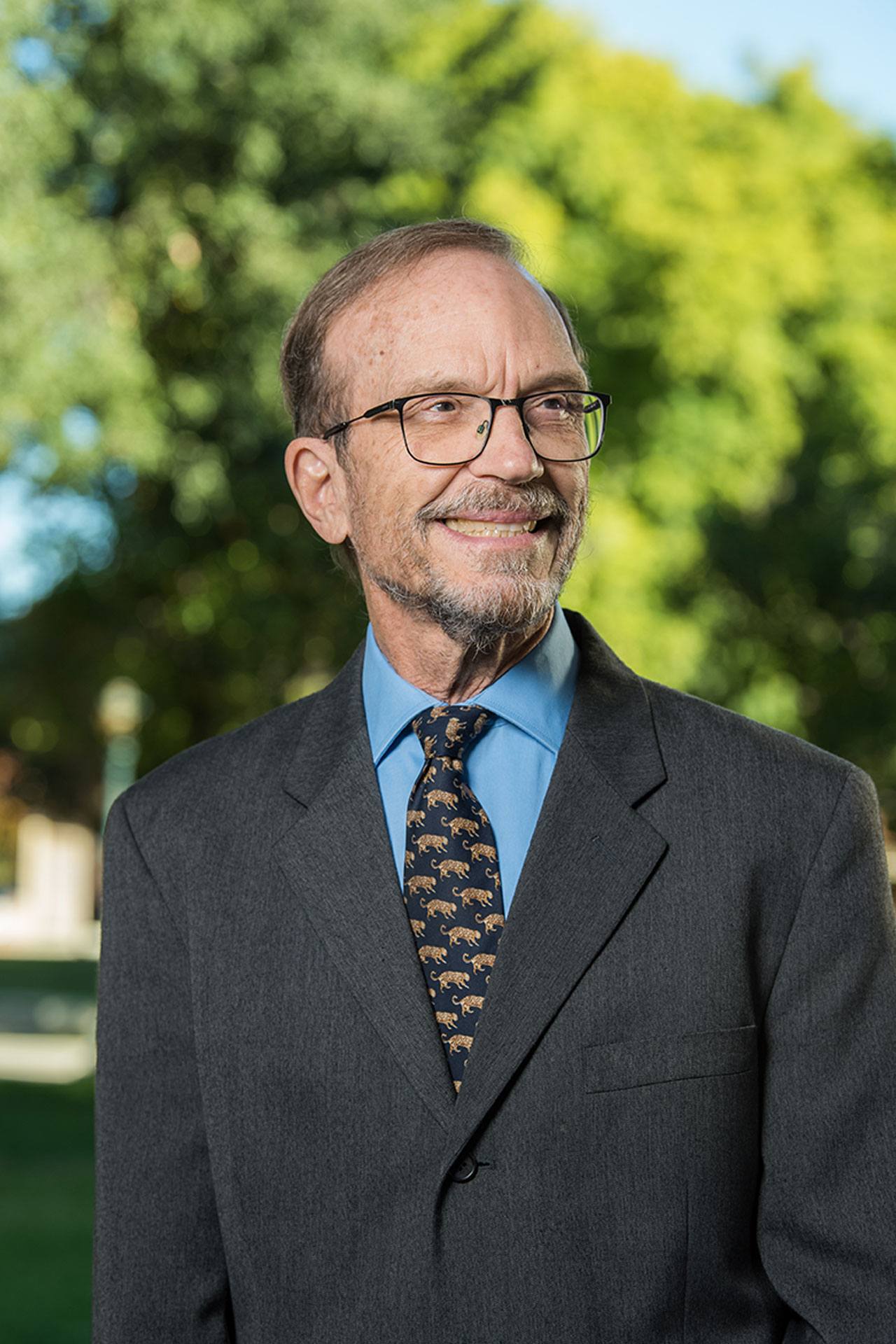Al Clark, PhD, is a professor of humanities at the University of La Verne and the driving force behind the university’s Oral History Collection. Clark, with support from students in his honors classes, has recorded the memories of more than 950 students, faculty, and staff in order to preserve the university’s history from the perspectives of those who lived it.
How did the Oral History Collection come into being?
In 2014, with University of La Verne’s 125th anniversary on the horizon, I decided to record the memories of university old-timers for the anticipated update of the university’s history, written by Gladdys Muir and Herbert Hogan. I inaugurated the collection using a tablet I was given for Father’s Day to capture the words and images of significant retirees and alumni.
Who has helped you in collecting this history?
I have personally recorded 662 individuals, and 70 honors students in my classes have recorded nearly 300 more. The most important players, however, are the interviewees themselves. Without their generosity in giving their time and memories we would have no oral histories, and the University of La Verne’s collective story would be poorer for it.
Are you continuing to collect interviews?
I have interviewed continuously since 2014, and I created an honors oral history course in 2020. Since I am retiring after 46 years this June, I am working to interview as many current and former Leopards this year as possible. I hope everyone reading this will reach out to me to schedule an interview to record their University of La Verne story!
Why is archiving and sharing our history important?
Much is left out of written histories because the documents they depend upon are limited. Oral history adds a wide range of primary source materials for future historians to use. We don’t know what questions later generations might want to ask. The archives will also allow interviewees’ descendants to see and hear their progenitors.
How does this research help us understand the university’s legacy?
Legacy encompasses everyone associated with the university, not just the few who make the history books or have photographs on the wall. Legacy involves more than buildings and bequests, but also people in residence halls, classrooms, and offices as well as on stage and playing fields. Oral history captures a fuller legacy than Board of Trustees minutes and press releases can tell.
What is your favorite episode or interview, and why?
Perhaps the interview with the earliest graduate I recorded. Mary Hunter ’33 was 101 when interviewed, with a keen mind and sharp wit. She described attending the dedication of Founders Hall in 1927 and Dean Hoover’s charm. She met her future husband in La Verne College’s required chapel, and she postponed her wedding to earn the money to pay off her student loan of $100.
What is a fun fact about the university’s history?
In the 1920s, students strove to distinguish themselves from the high school academy by writing our alma mater, inscribing the “L” on the hillside, naming the Campus Times, and composing the college song. Surprisingly, calling themselves Leopards occurred without forethought, apparently because competitors began using nicknames in sports journalism and seemingly primarily because Leopards commenced with “L.”
